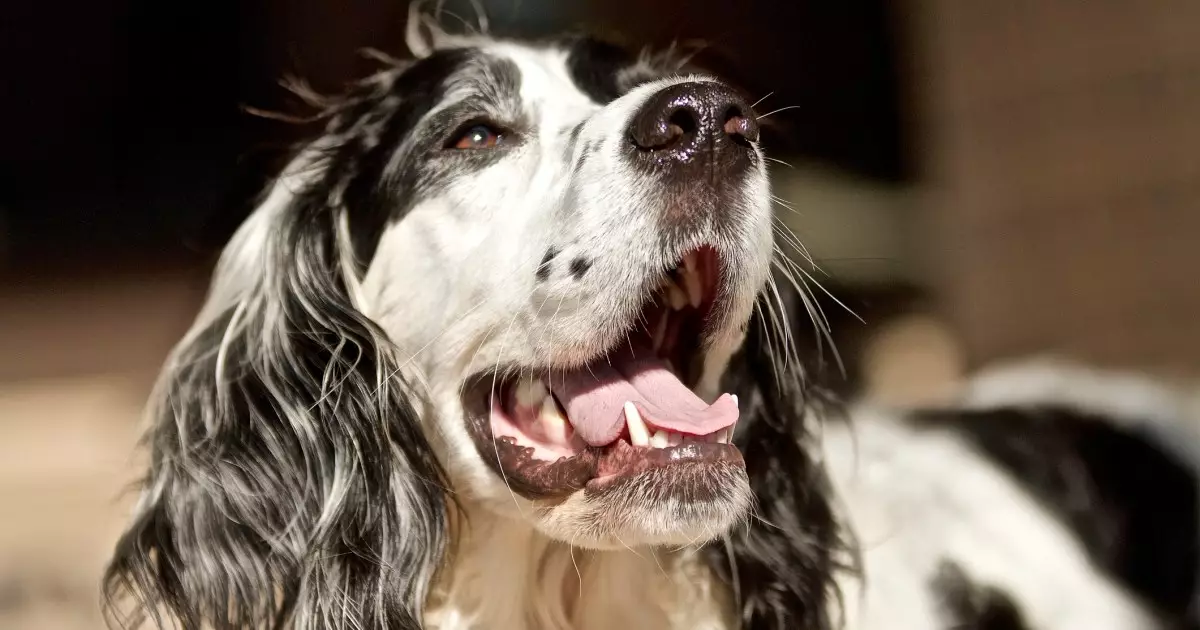Bad breath in dogs is one of those everyday nuisances that dog owners have come to accept as part of canine companionship. However, while doggy kisses drenched in slobber may sometimes be charming, the pungency that accompanies them can be a major red flag. Beyond the unpleasant odor, halitosis might indicate underlying health issues. In this article, we will delve into the various causes of bad breath in dogs and discuss effective strategies for improving their oral hygiene and overall health.
The Dangers of Periodontal Disease
One of the leading reasons dogs suffer from bad breath is periodontal disease, which is a serious dental condition affecting their gums and teeth. Research shows that dogs are significantly more susceptible to gum disease compared to humans, largely because of insufficient dental care in their daily routine. Most pet owners may neglect their dog’s oral hygiene, leading to plaque buildup, inflamed gums, and eventually severe dental issues.
To combat this, it’s advisable to integrate a solid oral care regimen into your dog’s daily routine. Brushing your dog’s teeth at least twice a week can do wonders for their breath and overall health. Regular dental cleanings at a vet can also help to maintain your pup’s dental hygiene. These steps can seem intimidating at first, but with patience and positive reinforcement, both you and your dog can become accustomed to the practice.
Another factor that significantly contributes to your pup’s stinky breath may lie not in their oral health, but rather in their dietary choices. Dogs, being the curious creatures they are, can sometimes indulge in less-than-pleasant snacks. Commonly referred to as coprophagia, the act of eating feces—be it their own or that of other animals—can drastically affect breath odor. Not only can this behavior be exceedingly unpleasant, but it can also pose health risks due to the ingestion of harmful bacteria or parasites.
Monitoring their eating habits and restricting access to unsavory snacks is vital. Ensure that litter boxes are in locations inaccessible to your dog and supervise them during outdoor activities to prevent destructive scavenging. If the behavior persists despite your efforts, consulting with a veterinarian or a professional dog trainer may provide additional, tailored solutions.
When foul breath has an unusually pungent smell resembling urine, it could be indicative of more severe issues, particularly related to the kidneys. Kidney disease is a serious condition that requires immediate veterinarian attention. Diagnosing such health concerns often necessitates a thorough examination and possibly diagnostic tests, as various conditions can manifest through oral signs.
Other gastrointestinal issues can also lead to malodorous breath. Symptoms such as excessive vomiting, lack of appetite, or lethargy accompanying bad breath should prompt a visit to the vet, as timely intervention is key to successful treatment.
The best strategy for tackling bad breath is a robust preventive plan. Establishing a routine that includes regular teeth brushing, vet checkups, and dental treatments can set your dog on a path to better oral health. If you encounter resistance during brushing, consider dental chews or special dog-friendly toothpaste designed to make the experience more enjoyable for your pet.
Discussing oral health with your veterinarian can be enlightening. They can recommend suitable products—ranging from dental diets to chew toys—that assist in maintaining your dog’s hygiene. Remember that continuous monitoring of your dog’s breath and overall health can prevent serious complications in the long run.
While a dog’s bad breath might not initially seem alarming, it is crucial to acknowledge the factors contributing to this condition. Understanding the reasons behind your dog’s halitosis can save them from potential health issues and enhance your quality time together. Investing time in your dog’s dental hygiene not only contributes to fresh breath but also promotes their overall wellness and longevity.

